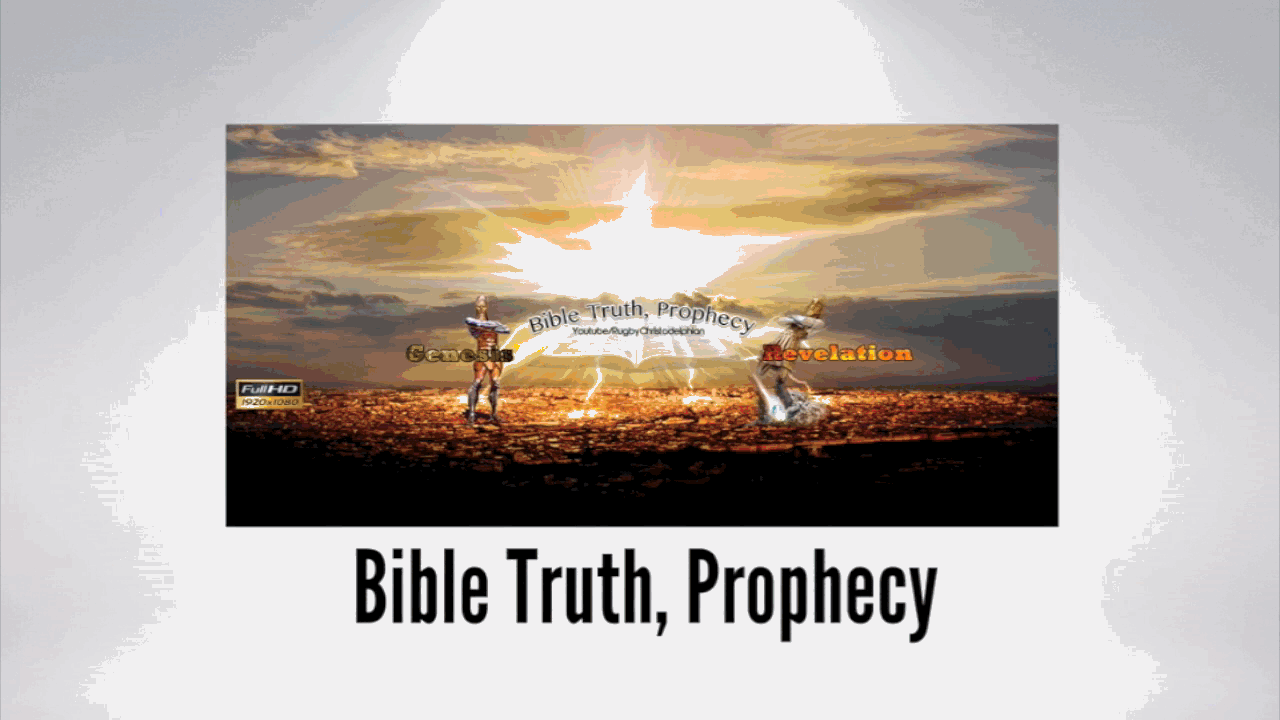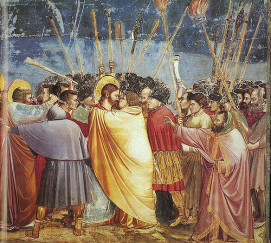It was cold dark night when suddenly….

We are all about… Learning from the Bible. Waiting for God’s Kingdom on Earth. Watching for Christ’s return (could be any day now). Hoping for resurrection and eternal life in God’s Kingdom.
It was a cold dark night when suddenly…
Booo!! ‘Spooky in the dark’ was always a favourite game amongst the kids at family get togethers when I was growing up. You close the curtains, turn out the lights, and hide. Then someone enters the dark room and tries to find everyone as their eyes adjust to the dark. It was hide and seek with the lights off; it felt intense, scary!
I do wonder whether we have a strange fascination with being scared. Whether it’s by watching a tense film or jumping out on people to shock them, feeling scared or shocked is perhaps appealing in a strange kind of way. Of course being afraid of the right things keeps us alive, it’s probably a good idea to be afraid of sharks, cliff edges, and [insert whatever you’re afraid of here]. But what about fear when there is seemingly nothing to be afraid of? Fear of the unknown? Fear of the dark?
The dark will be full of strange creatures, monsters and ghouls over the next few days as the UK and the US gear up for another Halloween. I’m left wondering what’s really at the heart of Halloween and what it’s all about. On one side it seems to be just another commercial success as Halloween becomes the the third biggest ‘event’ for retailers behind Christmas and Easter, with shoppers in the UK estimated to spend a staggering £400 million on Halloween items this year. Maybe it’s just another excuse for us to dress up, to have some fun, and for kids to demand sweets from strangers with veiled threats of ‘tricks’ to those who don’t cough up! But does it go deeper? And should we get involved?
There’s a decent litmus test to help us here in these words from Paul:
“Finally, brethren, whatsoever things are true, whatsoever things are honest, whatsoever things are just, whatsoever things are pure, whatsoever things are lovely, whatsoever things are of good report; if there be any virtue, and if there be any praise, think on these things.” Philippians 4:8
I suppose the question to ask is whether or not Halloween is based on values such as truth, honesty, justice, purity, love, goodness? If it isn’t, should we spend our time ‘celebrating’ it?
I’m not entirely sure to what extent people who celebrate Halloween think they are really conversing with the dead, maybe in darker ages people were more genuinely concerned with connecting with ‘other worlds’. In ancient times God warned against paying attention to those who thought they could summon the dead:
“When you come into the land which the Lord your God is giving you, you shall not learn to follow the abominations of those nations. There shall not be found among you…one who practices witchcraft, or a soothsayer, or one who interprets omens, or a sorcerer, or one who conjures spells, or a medium, or a spiritist, or one who calls up the dead. For all who do these things are an abomination to the Lord.”
Deuteronomy 18:9-13
In more modern times Paul again encouraged us to:
“And have no fellowship with the unfruitful works of darkness, but rather expose them.” Ephesians 5:11
So as we spend time thinking about Halloween, it’s origins and what it stands for, the darkness, fear and threat that comes with it, perhaps we should instead think of the light which Jesus spoke of:
“I am the light of the world. Whoever follows me will never walk in darkness, but will have the light of life.” John 8:12
Whatever your views are of Halloween, whatever enjoyment you get from playing ‘Spooky in the dark’, I’m comforted by the light of the Gospel, the light of Jesus, and the positive message he brings.
Can the dead come back to life? The Bible Says YES – but not yet!
Jesus rose from the dead and can never die again. Resurrection of those who believe in him is the true Christian hope. True followers of Jesus will live again – for ever – when he comes back to the earth. This is a far more uplifting and much more powerful than the things which don’t really go bump in the night.
“For as by a man came death, by a man has come also the resurrection of the dead. For as in Adam all die, so also in Christ shall all be made alive. But each in his own order: Christ the firstfruits, then at his coming those who belong to Christ.”
I Corinthians 15:21-23 ESV translation
Was Pikachu in our car park?
Imagine the scene. You drive into church, ready to open the doors for the toddle group, and as you turn the corner you meet two teenagers, stood in the middle of the car park, just standing there looking at their phones. Maybe a few months ago you’d have thought they were either looking for a Geocache, or on a desperate search for a 4G signal. In recent days it seems we can explain anyone being out of place by putting it down to Pokemon Go!
I’ve been amazed at how quickly the game has taken off in the UK, and also at the lengths of perseverance and effort people have gone to in order to find the next Pokemon. You’ll probably have heard of the group of teenage boys who got stuck in an underground cave network while searching for Pokemon! I’m glad they were brought back up top in one piece!
The idea of looking and searching is something which we’re familiar with, and it’s a theme which comes across really clearly in the Bible. I think one of the most comforting words in the Bible can be found in this Proverb, were we clearly see that if we look for God, we will find him:
“I love those who love me, and those who seek me diligently find me.”
Proverbs 8:17 (RSV)I also like the parables of looking and searching which we can read in Luke 15. There we find three stories of things which need finding.
The Parable of the Lost Sheep
“What man of you, having a hundred sheep, if he has lost one of them, does not leave the ninety-nine in the wilderness, and go after the one which is lost, until he finds it? Luke 15:4 (RSV)
The parable of the Lost Sheep is a story about a sheep which has become separated from the flock. It’s not really about a sheep, it’s about you and I. I think this parable could be about people being separated from their family, their church or their community; they find themselves isolated and on their own. It reminds us that it’s important to look for people who have become separated from their community. On a practical level it encourages us to get out there, make connections with the lonely and isolated, and help them find their way back others. I suppose on its deepest level the real message is about people who have become lost from God, how we should help them find their way back, and how God works to find those who have lost sight of him.
The Parable of the Lost Coin
“Or what woman, having ten silver coins, if she loses one coin, does not light a lamp and sweep the house and seek diligently until she finds it? Luke 15:8 (RSV)
The parable of the Lost Coin is a short but powerful parable about a woman who looses a coin in her home. It is a story which reminds us that someone can be lost even though they remain within the family, church, or community; you can be lonely within a crowd. There are two things which I find moving about the actions of the woman. Firstly that she knew that she’s lost a coin in the first place. This might seem obvious, but it shows she was paying attention and she knew how many she had. I suppose this reminds me that it’s important to pay attention to people, and make sure that they’re alright. You may see them around, they keep turning up to church, or you may see them each morning at the school gates, but you won’t know if they’re ‘lost’ unless you really take the time to know them in the first place, and then you will know when they’re not quite right.
The second thing which I find inspiring about the woman is the amazing effort she went to in finding the coin. She sweeps the whole house until she found it, and I suppose the message to remember is about the diligence required to find people who are lost; the time it takes, the care and attention it needs. You keep on looking because you know it’ll be worth it in the end.
The Parable of the Prodigal and His Brother
“Now his elder son was in the field; and as he came and drew near to the house, he heard music and dancing. And he called one of the servants and asked what this meant. And he said to him, ‘Your brother has come, and your father has killed the fatted calf, because he has received him safe and sound.’ But he was angry and refused to go in. His father came out and entreated him, but he answered his father, ‘Lo, these many years I have served you, and I never disobeyed your command; yet you never gave me a kid, that I might make merry with my friends. But when this son of yours came, who has devoured your living with harlots, you killed for him the fatted calf!’ And he said to him, ‘Son, you are always with me, and all that is mine is yours. It was fitting to make merry and be glad, for this your brother was dead, and is alive; he was lost, and is found.’” Luke 15:25-32 (RSV)
The fascinating thing about the last parable in Luke 15 is that both brothers are lost. We often focus on the prodigal son who goes off to waste his money in a reckless way, only to return back to his family. It’s the older brother who’s also lost, but doesn’t seem to know it. Instead of being happy that his brother has returned, he responds with anger; he was lost within himself and within the family.
I suppose the really comforting thing to remember is that God wants us to find him, and while it may be difficult from time to time, we have each other and his Bible to help us on our search.
I’m not sure I’m ready for Pokemon Go just yet! No doubt Pikachu will be pleased to see me if I ever find him, and while I’m not doubting that he is pretty cute I’m afraid that the reward he will give me is nothing in comparison with the
reward God gives those who search for him.
“For whoever would draw near to God must believe tha
t he exists
and that he rewards those who seek him.”Hebrews 11:6 (RSV)
“Eye hath not seen, nor ear heard, neither have entered into the heart of man the things which God hath prepared for them that love Him.”
1 Corinthians 2:9 (RSV)Beware the Panic Monster…
You know what it’s like, jobs need doing, you have plans, important things need attention; somehow you get sidetracked, something else catches your eye, grabs your attention.
In ‘Inside the Mind of a Master Procrastinator’ Tim Urban explains our desire to be distracted from the challenges of life by the ‘Instant Gratification Monkey’. It’s a brilliant allegory of the psychology of procrastination and decision making.
He describes the ‘Panic Monster’ who appears now and again, at times of pressure or when we’re at risk of embarrassment and catastrophe, in order to shock us into action.
I wondered how procrastination affects the lives of those who are considering following Jesus, and of those who are waiting for his return?
Do we put off making our mind up about following Jesus? Do we leave it for another day to start thinking about our spiritual point of view?
This is what the Bible says about taking this opportunity now:
‘now is the favorable time; behold, now is the day of salvation’
2 Corinthians 6:2 (ESV)
I heard a great bible talk recently on the title ‘The Lord Delays His Coming’, where we considered why Jesus’ return seems to be taking so long, and why it seems to have been delayed; we thought about the affect this waiting has on our lives.
The Bible seems full of examples where God pauses his plans, for a variety of reasons, for example:
- The Israelites who spent a generation wondering the wilderness instead of going to the promised land themselves (Numbers 14);
- King Hezekiah who was told he would die, only for God to postpone Hezekiah’s death because of his devoted prayer (2 Kings 20).
The exciting thing is that these delays provide opportunities to you and I. They allow more people to benefit from God’s mercy, have the time to come to know the gospel message, and find salvation through baptism.
The delay of the Jesus in returning to the earth also poses questions and challenges for us to consider…
- Can we continue to wait in patience?
- How do we avoid becoming despondent or discouraged?
- Can we fight off a growing apathy?
- How can we keep our attitudes and behaviours in check while we wait for him to return?
These verses in Luke 12 show us the possible effect of this delay on our behaviour:
‘But if that servant says to himself, ‘My master is delayed in coming,’ and begins to beat the menservants and the maidservants, and to eat and drink and get drunk, the master of that servant will come on a day when he does not expect him and at an hour he does not know, and will punish him, and put him with the unfaithful.’
Luke 12:45-6 (RSV)We don’t know when Jesus will return, and the Bible suggests that we won’t be expecting it when he does. The apostle Paul describes Jesus’ return as coming as a ‘thief in the night’:
‘But as to the times and the seasons, brethren, you have no need to have anything written to you. For you yourselves know well that the day of the Lord will come like a thief in the night.’
1 Thessalonians 5: 1-2 (RSV)The challenge for us is to make sure we don’t get distracted by the ‘Instant Gratification Monkey’ and loose sight of the return of Jesus. The time to respond to the Gospel is now, we can’t rely on the ‘Panic Monster’ to tell us; by then it’ll be too late.
‘He who believes and is baptized will be saved; but he who does not believe will be condemned.’
Mark 16:16 (RSV)
Et tu, Brute?
Let me tell you a story of treachery and betrayal.
The night before the dreadful day they all gathered, as was their want, for their annual get together. This time they met in secret, hidden away in the city.
Most of them finished the night happy; most of them oblivious to the treacherous act that was to unfold in the night. After all they were friends, colleagues, with a common aim and purpose, weren’t they?
They had been out campaigning together, up and down the country preaching their anti-establishment message; follow me and I’ll set you free.
Something had changed, in one of them at least. Perhaps it was that he no longer wanted to be the “bag” man, holding the purse strings as it were, maybe he didn’t like the direction his leader was taking.
The temptation was too much; so as soon as he left his friends he plotted the downfall of his ally. As the plot unfolded, and the rumours spread, the brothers had one question, who would betray their leader?
“It is one of the twelve,” Jesus replied, “one who dips bread into the bowl with me.” (Mark 14 v 20). It was Judas. He was the one plotting to betray Jesus to the authorities, he was the one who went out in the middle of the night and gathered troops for the coup.
While Judas’ betrayal of Jesus was a shock to some, Jesus knew he was going to be betrayed and killed; so too did John the Baptist who pronounced Jesus to be “The Lamb of God, who takes away the sins of the world” (John 1 v 29). Jesus also knew he would be betrayed by one of his closest followers, yet despite this, the compassion and care Jesus showed towards Judas is truly inspiring.
While the story of Judas brings criticism upon him, we all do wrong; we may be selfish or proud; we may be untrustworthy or even betray our friends. The amazing thing is that we can all find forgiveness. Jesus gave his life so that we can start afresh, and move on from our mistakes.
Jesus said “whoever believes and is baptised will be saved” (Mark 16 v 16). Baptism holds the key to salvation, allowing us to start afresh, no mater what mistake we’ve made in the past.
Jesus gave his life so we can start afresh.
Can you keep a secret?
Imagine you know something which everyone else wants to know. Imagine you can choose whether to tell people what you know, or keep it a secret. Imagine that if you did decide to tell someone else, you could be as truthful as you wanted to be; it might be fun to exaggerate a few things here, to miss out a few details there. Imagine how powerful you’d feel!
Now image someone knows something about you. Maybe they know about something you’re ashamed of, maybe they saw you on an off day, when you made some mistakes. Imagine they are the only person who knows what you did. You’d probably want to make sure your secret was kept safe, so your reputation didn’t suffer. Imagine the uncertainty; imagine how helpless you’d feel.
We often say ‘knowledge is power’ and I guess we can apply that idea to lots of different situations. Knowing something does bring with it considerable power. The power to share that knowledge or keep it to yourself. The power to protect that knowledge from corruption, or to manipulate it. The power to use that knowledge for good, or evil.
This week the long awaited Chilcot report will hit the country. 7 years after it was commissioned to look into the UK’s role in the invasion of Iraq in 2003. There’s a real sense that the country needs to hear the truth, so we can move on. I suppose many of the families of those soldiers who fought and died in Iraq are hopeful of some kind of closure; I hope they hear what they need.
The report seems shrouded in mystery; you wonder why its taken so long. After such a wait you can still read the criticisms of the inquiry, the allegations of perceived bias; the worries about censorship and manipulation. I
suppose we’re left wondering if the answers the country will get will be the ones it wants.Perhaps the difficulty with preserving the truth is that it often becomes a victim at the hands of those who want to protect their power. Naturally people will fight to preserve their status or reputation, and I suppose it’s part of our nature to justify our actions, even if that means bending the truth from time to time. It’s difficult to admit you got it wrong, especially when so much is at risk.
God makes it pretty clear what he thinks of those who don’t protect the truth, and those who plot evil:
Proverbs 6:16-19 ESV
“There are six things that the Lord hates, seven that are an abomination to him: haughty eyes, a lying tongue, and hands that shed innocent blood, a heart that devises wicked plans, feet that make haste to run to evil, a false witness who breathes out lies, and one who sows discord among brothers.”Whatever we think of the credibility of the Chilcot Inquiry, whatever we think we’ll learn when it’s published, whatever closure we hope the nation will find, it’s comforting to know that in God we have someone whose truth and integrity are second to none.
Job 34:12 ESV “Of a truth, God will not do wickedly, and the Almighty will not pervert justice.”
(This and other blogs can be found on the website of our sister site in Morecambe)
If you wish to make a comment a about anything you have seen or read on this page – Good or Bad, Please use the form below
Error: Contact form not found.
We are always keen to receive your feedback, you may leave comments in the comments area below or alternatively email us at [email protected] and we will get back to you with a reply as soon as we can.
Follow us on our dedicated Facebook pages
Or our website
 (Subscribe for updates)
(Subscribe for updates)
If you would like to subscribe to our YouTube channel, once you have clicked ‘Subscribe’ make sure you click the cog next to the subscribe button and select ‘Send me all notifications for this channel’
Note: Bad language and comments with links to other videos or websites will be removed.
Download our ‘Free’ Bible APP – ‘KeyToThe Bible’ for i-phone or Android

Bible Truth and Prophecy, – Welcome to our site run by the Christadelphians Worldwide to help promote the understanding of God’s Word to those who are seeking the Truth about the Human condition and Gods plan and Purpose with the Earth and Mankind upon it.
Other Christadelphian Channels we recommend
BibleProphecyHD
ChristadelphianVideo
ChristadelphianHUB
BibleStudiesHD
BibleTruthVideos
BibleProphecyHD
BibleProphecyHub
CPDLIVE
BibleProphecyChannelUpdate
Key to the Bible
For more information on the Christadelphians
blogspot
Twitter
Thisisyourbible
Read a variety of booklets on-line concerning various key Bible subjects.
Free Bible Booklets
End Time Prophecies are interpreted using the Bible, not man made ideas or notions.
Key Biblical subjects such as the Trinity, Devil/Satan worship, Holy Spirit Gifts & much more are all dealt with extensively from the Bible’s viewpoint and not man’s.We will demonstrate how Christian beliefs have become corrupted, and reveal the ‘Truth’ as taught by the 1st Century Apostles.





